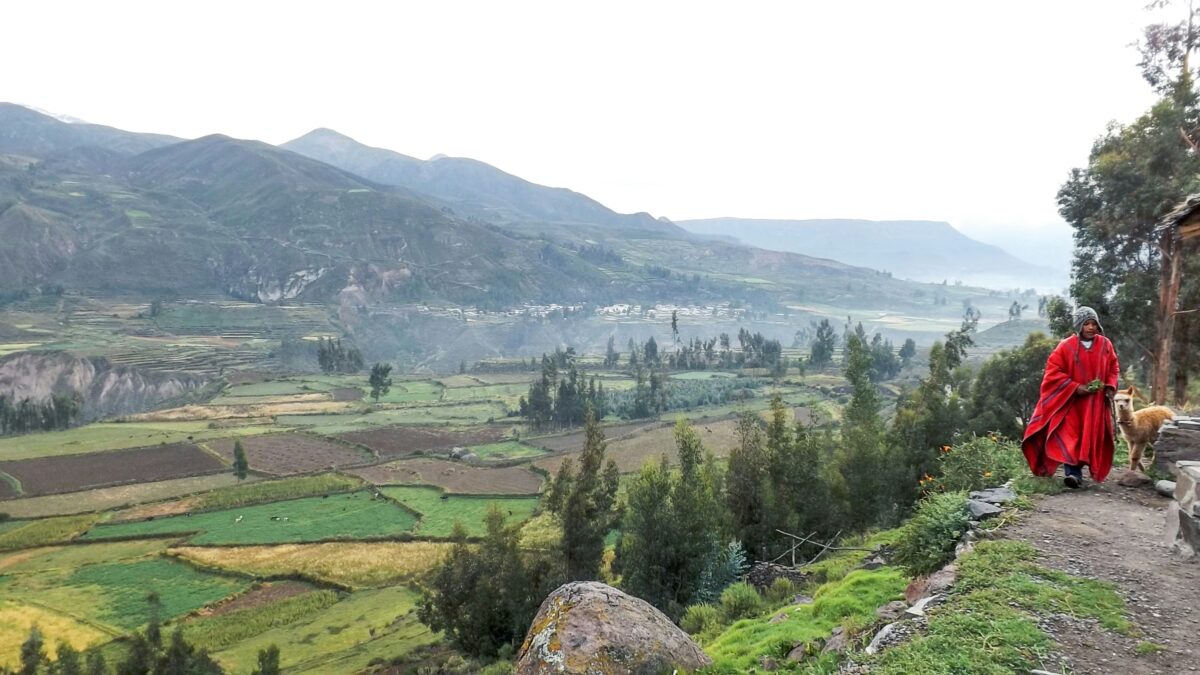Nearly half of the population in Bolivia is made up of Indigenous people, and they want leaders whose policy platforms reflect the interests of Indigenous communities. Evo Morales was elected as president in 2010, becoming the nation’s first Indigenous leader. His policies aimed to protect Indigenous people and their land rights, safeguarding them from exploitation. One of his main goals during his nine-year period in office was to transform Bolivia into a main lithium global producer and exporter. Part of how he progressed toward this goal was by creating the country’s first nationally-owned lithium company: Yacimientos del Litio Boliviano (YLB). His goal with YLB was to have the state completely control and own the lithium industry. However, members of the Indigenous communities in Bolivia disagreed with this action and mobilized against him, pushing him to abandon the project.
In Fall of 2019, Morales ran for a fourth-term reelection. Under the suspicion that his victory was rooted in electoral fraud, Bolivian citizens protested the results. Weeks later, Morales was eventually overthrown in a police-military coup that established right-wing Jeanine Añez as president. Though the reputation of Movimiento al Socialismo (MAS), Morales’ political party, was tainted, the lithium trade was continuing to boom.
The “lithium triangle” consists of Australia and the South American countries of Argentina, Chile, and Bolivia. Nearly 80-90% of the world’s lithium is produced in these regions. In Bolivia, lithium comes from salt flats. The raw lithium is processed into lithium chloride, which can power batteries, smartphones, and electric vehicles.
However, contrary to Morales’ goal of passing a policy that is environmentally friendly and conscious of Indigenous Bolivians, the production and mining of lithium harms the environment. In order to produce lithium, large amounts of water are needed, taking away from the limited water supplies in the arid Bolivian salt flats. Many Indigenous Aymara people there live off the land and have the llama as their source of livelihood. They sell its wool and meat to survive, and the limited water supply limits the water llamas drink and survive on. There have even been claims that chemical companies Albemarle and SQM have surpassed their legal quota on water allowed to be extracted to produce lithium.
To compensate for the degradation to their environment, some lithium companies have come to agreements with local communities. A Canadian-Chilean company known as Minera Exar has struck a deal with the Indigenous communities: where the company generates nearly $250 million off the lithium extraction, and the communities receive around $9,000-60,000. Other companies have promised to build schools or other facilities in exchange for rights to the flats and water resources, but have not confirmed exactly how the payments have been executed.
However, representatives from these mining lithium companies have argued that their presence in these desolate regions has brought prosperity to the communities present. Alexa Losada-Calderon, a manager at Sales de Jujuy, cites that from the very beginning “they worked very, very closely with the local community.” Members of other companies have also cited that with their companies investing in Bolivian resources, jobs and capital flows have been circulating more in the country, improving its economy. Yet, the director of the Llipi plant has noted that the majority of workers come from major Bolivian cities, not local communities. Calls for educating and training the Aymara peoples to give them better access to job opportunities have gone ignored.
Because the lithium industry imposes strain on the water supply of the Indigenous people living in the Atacama region, Indigenous residents also find that the mining companies are counterintuitive to their environmentally-conscious way of life. As Carlos Guzman, an Indigenous Bolivian man stated, “These lands are ancestral….[our] way of life is in danger.”
Once extracted, lithium is exported to various parts of the world. Because its properties are used as an energy source for technological products, some of the clients that purchase lithium from these mining companies include Japanese and Chinese automobile companies, as well as some American ones. The most notable is Tesla, headed by CEO Elon Musk. In order to manufacture and assemble a Tesla 85-KWH Model car, approximately 112 pounds of lithium are needed. After Musk announced Tesla’s plan to build a lithium “Gigafactory” in Nevada, there is an incentive for Bolivia to become the main source of lithium for Tesla. Other companies have followed suit and, as a result, the global demand for lithium has gone up.
To handle this new demand for lithium, a country needs adept political leaders that can maneuver its supply and negotiate terms for its extraction and production while also considering the needs of its own people. In Bolivia, Luis Arce, a member of Evo Morales’ political party “MAS,” was elected as president in October 2020. Like his predecessor, Arce has goals of amping up Bolivia’s production of lithium given that they hold most of it globally, and seek to supply 40% of the international market by 2030. A few days after the election, Arce also moved to restore its diplomatic relations with Iran and Venezuela to welcome national and foreign projects with the lithium industry. This paves the way for a stronger relationship in which the nations can become partners in the production and exportation of lithium.
However, because the lithium projects stagnated under President Añez, it is unclear how successful current President Arce will be in reigniting the lithium trade in Bolivia while also correcting Morales’ mistakes and doing right by the Indigenous people living in the salt flats. The course of his presidential term will show whether the world will see a restoration of faith in the Movimiento al Socialismo party, a prosperous lithium industry, and a rise in political influence for Bolivia in the Andean region.
Sources:
Baxter, A. (2020, August 29). Bolivian Indigenous People Lose Out On Lithium. Retrieved November 21, 2020, from https://www.humanrightspulse.com/mastercontentblog/bolivian-indigenous-people-lose-out-on-lithium
Burns, S. (2020, October 22). Bolivia looks set to return to policies of ousted former president Morales. Retrieved November 20, 2020, from https://agmetalminer.com/2020/10/22/bolivia-pivots-back-to-socialism-what-does-that-hold-for-resource-extraction/
Frankel, T. C., & Whoriskey, P. (2016, December 19). Companies are making billions in lithium mining. But these indigenous people are being left out. Retrieved November 19, 2020, from https://www.washingtonpost.com/graphics/business/batteries/tossed-aside-in-the-lithium-rush/
Hilaly, I. (2020, October 29). Bolivia’s Lithium Challenges its Democracy and Environment. Retrieved November 20, 2020, from https://www.irinsider.org/environment-1/2020/10/29/bolivias-lithium-challenges-its-democracy-and-environment
Horvath, E., & Medina, A. R. (2019, April 9). ‘Indigenous people’s livelihoods at risk in scramble for lithium, the. Retrieved November 19, 2020, from https://www.reutersevents.com/sustainability/indigenous-peoples-livelihoods-risk-scramble-lithium-new-white-gold
Kurmanaev, A., & Trigo, M. S. (2020, June 07). A Bitter Election. Accusations of Fraud. And Now Second Thoughts. Retrieved November 21, 2020, from https://www.nytimes.com/2020/06/07/world/americas/bolivia-election-evo-morales.html
Lombrana, L. M. (2018, December 3). Bolivia’s Almost Impossible Lithium Dream. Retrieved November 22, 2020, from https://www.bloomberg.com/news/features/2018-12-03/bolivia-s-almost-impossible-lithium-dream
Merchant, E. F. (2018, January 11). Lithium-Ion Battery Production Is Surging, but at What Cost? Retrieved November 19, 2020, from https://www.greentechmedia.com/articles/read/lithium-ion-battery-production-is-surging-but-at-what-cost
Ramos, D., & Laing, A. (2020, November 11). Bolivia restores ties with Iran, Venezuela after socialists return to power. Retrieved November 20, 2020, from https://www.reuters.com/article/us-bolivia-politics-morales-idUSKBN27R2ZB
Stone, M. (2020, November 11). The world needs lithium. Can Bolivia’s new president deliver it? Retrieved November 17, 2020, from https://grist.org/energy/the-world-needs-lithium-can-bolivias-new-president-deliver-it/

